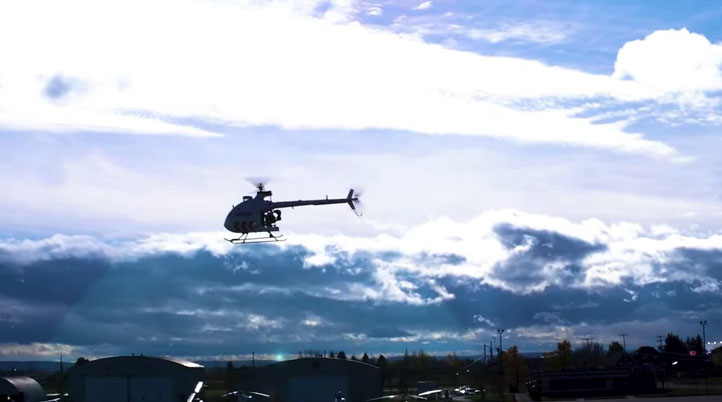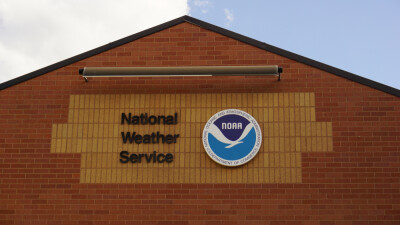In Canada, just like in many other countries, drones are transforming the transportation sector, redefining aviation, creating new industries while altering existing ones, and exponentially increasing the number of both recreational and commercial drone pilots sharing the airspace. UAVs represent an opportunity for Canada’s commercial sector to increase efficiency and competitiveness. From non-profit organizations and academic institutions to government entities and a variety of drone companies, Canada’s drone ecosystem consists of various key players in the drone industry.
Transport Canada, “Canada’s FAA”
Since 2015, Transport Canada, Canada’s government department responsible for transportation policies and programs, has been working towards the integration of safe and secure drone operations into Canadian skies as part of a modern national civil aviation system. With the Canadian commercial market expected to grow by more than 17.4% by 2027, Transport Canada is focused on connecting communities, improving the country’s supply chain networks to help move goods so they can reach consumers.
In collaboration with industry and other partners on Research & Development (R&D) activities, pilot projects to test technologies, and developing regulations and standards to ensure drones are used safely, the department identified challenges and opportunities for its drone strategy up to 2025. The department’s top priorities are developing regulations for lower-risk BVLOS operations in rural and remote areas, understanding the security threats and risks posed by drones at airports and other critical infrastructure, supporting economic growth, and increasing public trust. In a long-term effort, the establishment of a drone traffic management system is also another of the key priorities.
Over the past few years, Transport Canada addressed these challenges by achieving various milestones. In 2019, it introduced new VLOS drone rules under Part IX of the Canadian Aviation Regulations (CARs). Later on, it launched an online Drone Management Portal for pilot exams, certificates, and drone registration, and developed a BVLOS strategy through a Special Flight Operations Certificate application. As of October 2020, the department had issued 52 Special Flight Operations Certificates (SFOCs) to support lower-risk BVLOS operations. In April 2020, the department posted a new Notice of Proposed Amendment (NPA) to update Canadian regulations to allow for routine beyond visual line of sight (BVLOS) drone operations in “Low Risk” environments.
Since 2018, in partnership with the National Research Council of Canada (NRC), Transport Canada’s plan to support innovation through research and development to advance drone safety has grown from 3 to 8 research and development (R&D) projects. The goal of this program is to promote Canadian development of research and technology related to several subjects, including Detect and Avoid (DAA) systems, Command and Control (C2) link robustness, human injury probability, and drone detection.
One of the upcoming projects is the 2022 DAA trials to test the performance of several non-cooperative airborne DAA systems in partnership with Iris Automation, Fortem Technologies, and Echodyne. Following the integration of the above sensors onto a Bell 205 helicopter, testing will be conducted by the NRC during spring and summer 2022. The results of these trials will help to validate safe minimum performance requirements for these types of DAA systems and assess the overall readiness of the technology.
With two drone test ranges in Canada, the UAS Centre of Excellence in Alma, Quebec and the Foremost Centre for Unmanned Systems in Foremost, Alberta, Transport Canada provides a safe environment for operators to test new technologies and validate safety procedures without putting other aircraft or bystanders at risk. Both test ranges have access to restricted airspace, and operations follow a facilitated and streamlined Special Flight Operations Certificate process.
Nonprofit Organizations and Associations
In Canada, multiple nonprofit organizations and associations are working towards the development of the drone industry. Born in Canada to promote Canadian unmanned systems capabilities back in 2008, the Association for Uncrewed Vehicle Systems International (AUVSI) is one of the world's largest nonprofit organizations dedicated to the advancement of uncrewed systems and robotics.
Founded in 2003, the Aerial Evolution Association of Canada, previously known as Unmanned Systems Canada, is a national industry association representing entrepreneurs, businesses, students academia, industry, and government organizations working in the aerial, remotely-piloted systems sector. Its mission is to promote, empower, and help evolve Canada’s Aerial community. In late 2021, the association announced the 13th annual Student UAS Competition to promote and develop Canadian expertise and experience in unmanned systems technologies at the university and college levels. Divided into two phases, the competition’s Phase 1 (design report) took place on January 16th, 2022, while Phase 2 (operational demonstration) will take place on May 6th-8th 2022.
Earlier this year, the Canadian Owners and Pilots Association (COPA) signed a non-binding Memorandum of Understanding with the Aerial Evolution Association of Canada to conduct joint activities for fostering the development and safe integration of Remotely Piloted Aircraft Systems (RPAS), drones, in Canadian airspace. With more than 15,000 members, COPA represents Canada’s largest aviation association.
“We are excited to take this important step with AEAC which provides an opportunity to leverage the resources, strengths, and talent of both associations,” says Christine Gervais, President and CEO of COPA. “The scope of RPAS operations in Canada continues to evolve at a rapid rate, and this partnership reinforces our two association’s shared commitment to safety and protecting all pilots’ freedom to fly.”
Drone Companies in Canada
Drones provide both a business solution to address Canada’s geographic and economic realities, and unique commercial opportunities where drones can be used to collect data in areas such as monitoring wildlife, surveys of pipelines, search and rescue missions, and delivering goods to remote areas. In 2019, 70% of Canada’s drone companies were based in Ontario, Alberta, and British Columbia working across 15 different Canadian industries.
With a vision is to be the premier drone delivery company globally, Drone Delivery Canada (DDC) commercializes its technology to create new and innovative logistics platforms to support governments, commercial & industrial applications (emergency services, medical, last-mile delivery, mining, oil & gas, agriculture, parcel delivery, postal mail, military/security) and remote communities (Indigenous and non-Indigenous). The solution is a fully integrated turnkey logistics platform including industrial-grade drones, automated DroneSpot depots, automated Battery Management Systems, a detect & avoid radar system, and proprietary FLYTE software to integrate all components into a safe & effective solution. Recently, the company announced the successful approval and implementation of dangerous goods transportation within DSV Canada’s intra-site drone delivery route. This will enable the delivery of dangerous goods consumer products from the DroneSpots (depots) at DSV’s warehouse in Milton, Ontario.
Designed for Oil & Gas, Offshore, Energy, and Civil Infrastructure, Skygauge’s drone performs ultrasonic thickness inspections while simultaneously conducting both Close Visual Inspection and General Visual Inspection. To allow users to inspect any surface, at any angle, Skygauge’s drone uses patented thrust-vectoring technology to maintain a stable frame throughout the flight, meaning that only the drone’s thrusts will tilt and not the whole frame. Also, the tilting rotors will automatically and instantaneously correct for any turbulence while flying to maintain precise contact. The drone works as a multi-purpose tool, allowing inspectors to attach the required tools for different types of inspections, such as a wire brush for cleaning inspections surfaces, an angled-beam probe for weld inspections, or a phased-array probe for corrosion mapping.
One year ago, DroneTechnic, a drone flight school, became the first drone flight school in Canada licensed to provide training on BVLOS low-risk operations (long-range surveillance, search and rescue, inspection, and cartography). Other than BVLOS training, the company also offers basic and advanced courses in VLOS flights. This spring, classes of five to eight students will be allowed to participate in Canada’s first drone delivery training by DroneTechnic, only 30 minutes away from Montreal. Through this training, students will develop the competence to perform legal and safe B2B and B2C aerial deliveries, without even having to land, due to a VTOL drone, controlled by 4G connectivity and equipped with a winch.
Dedicated to commercializing the full potential of drone technology, Volatus Aerospace is one of the largest providers of unmanned services in Canada with offices in British Columbia, Alberta, Manitoba, Ontario, Quebec, and Prince Edward Island. With over 7 years of experience in the drone industry, Volatus offers services in many areas, including Aerial Surveying, Topographic Mapping, DEMs, Orthographic Mosaics, GIS (Geographic Information Systems) Maps and Imagery, CAD Modelling, Inspections, Agricultural & Forestry Mapping, Thermal Imaging, as well as 4K Videos and Photos. The company forecasts revenues of $38 million in 2022, a 138% growth from 2021, with an expected gross margin of 31%.
For more than two decades, Draganfly supports clients with enterprise drone solutions, contract engineering services, custom software, professional UAV services, and more. “At Draganfly, we operate by a few guiding principles that put our partners at the center of everything we do,” the company’s website reads. “We don’t produce commercial drones in mass quantities; we design and manufacture professional drones for specific use cases. We don’t measure success by sales; we measure it by customer success. And we don’t sell our services if we can’t do the job well; we only make decisions and drones we can be proud of.”
Last month, Draganfly received a total initial order size of up to 200 units of its medical-response and search-and-rescue drones from Coldchain Delivery Systems LLC for immediate deployment with the group Revived Soldiers Ukraine. The medical-response drones will be equipped with a temperature-managed medical response payload box that can transport up to 35 pounds of medical supplies, including blood, pharmaceuticals, insulin/medicines, vaccines, water, and wound-care kits, the company said.
Interested in learning more about commercial drones’ international impact? Join the global drone community at Commercial UAV Expo.
Commercial UAV Expo is the definitive global event for professionals integrating or operating commercial UAS. With top-notch education, thousands of attendees, and more exhibitors than any other commercial drone event, it’s the best opportunity of the year for anyone who needs to keep up with commercial UAS technology, trends, and developments. The 2022 event currently boasts more than 300 media and association supporters from six continents.
Countries represented at the event are far-reaching and represent the global breadth of the commercial UAV industry, including a Czech Republic Pavilion, a Korea Pavilion, and attendees and exhibitors from Australia, Austria, Belgium, Canada, China, Finland, France, Germany, Ghana, India, Indonesia, Israel, Japan, Latvia, Mexico, Morocco, Norway, Slovakia, South Africa, South Korea, Switzerland, Thailand, The Netherlands, Turkey, Ukraine, United Kingdom, Uruguay, United States and Vietnam and more!
Registration is now open - click here to register today.















Comments